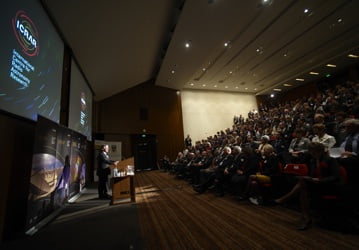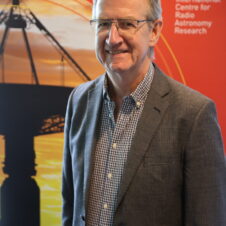The International Centre for Radio Astronomy Research or ICRAR was officially launched in Perth on September 1.
The Centre launched to a veritable buzz of excitement, with over 300 people in attendance including Premier Colin Barnett, Minister Troy Buswell, Director of the International SKA Program Development Office Professor Richard Schilizzi, and WA’s Chief Scientist Professor Lyn Beazley.
“ICRAR would show Australia and the State were capable of delivering world-class technology and facilities and create opportunities for local industry to participate in the wider SKA project”, said Premier Colin Barnett.
ICRAR is tasked with playing a pivotal role in Australia’s effort to secure the $2.5 billion Square Kilometre Array. It will also help coordinate WA’s radio astronomy research and attract more than 30 new international astronomers, scientists and experts in related fields to the State.
”Right now we are on the threshold of what will be the greatest step we have ever taken on our cosmic journey of discovery”, said ICRAR director Professor Peter Quinn.
“The design and construction of the Square Kilometre Array will create a single scientific machine capable of studying the first objects to shine in the Universe, the very beginnings of the cosmic avalanche of growth that resulted in mankind some 13 billion years later.”
In Western Australia, the unique radio quietness of the Midwest Region offers one of the best places in the world to look at the radio Universe and it is this site that Australia is offering to the international community as a potential home for the SKA.
The Centre is led by some of Australia’s most eminent astronomers from the two universities.
These include three Premier’s Fellows (Director Professor Peter Quinn, Deputy-Director Professor Steven Tingay and Deputy-Director Professor Lister Staveley-Smith) and Australia’s only Professor of Radio Astronomy Engineering (Deputy-Director Professor Peter Hall).
ICRAR is a joint venture between Curtin University of Technology and The University of Western Australia, sponsored by the State Government.
It receives strong collaborative support from partners such as CSIRO, iVEC and IBM.


